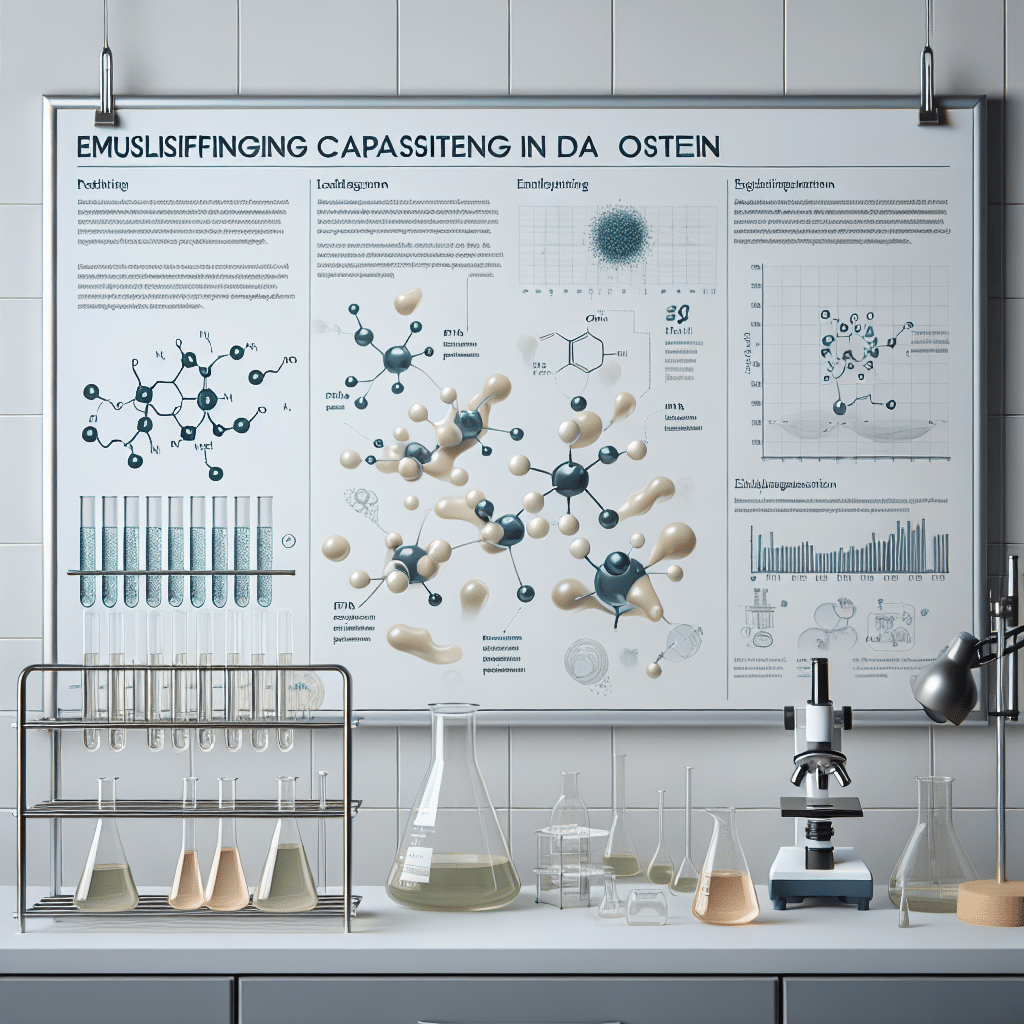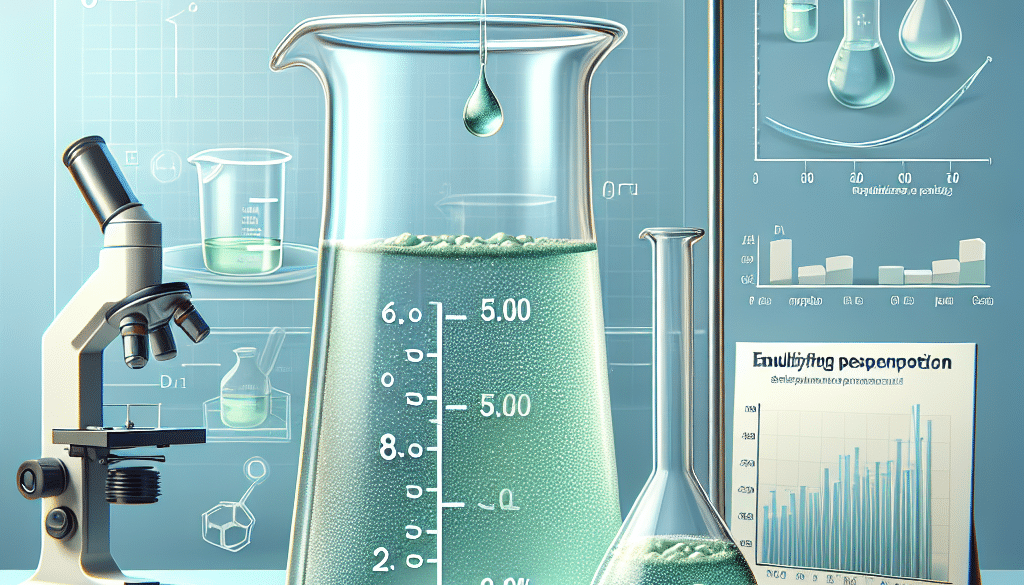Emulsifying Capacity of Pea Protein: Full Potential Unleashed
-
Table of Contents
- Pea Protein’s Emulsifying Power: Unlocking Its Full Potential
- Understanding Emulsification and Pea Protein
- The Science Behind Pea Protein’s Emulsifying Properties
- Advantages of Pea Protein in Food Emulsions
- Maximizing the Emulsifying Capacity of Pea Protein
- Case Studies and Real-World Applications
- Challenges and Solutions in Pea Protein Emulsification
- Statistical Insights into the Pea Protein Market
- Conclusion: The Future of Pea Protein in Emulsification
- Discover ETprotein’s Premium Pea Protein Products
Pea Protein’s Emulsifying Power: Unlocking Its Full Potential

Pea protein has emerged as a powerhouse in the food industry, particularly for its emulsifying capabilities. This plant-based protein source is not only sustainable and allergen-friendly but also boasts a functionality that can revolutionize product formulations. In this article, we delve into the emulsifying capacity of pea protein, exploring how it can be fully unleashed to benefit manufacturers and consumers alike.
Understanding Emulsification and Pea Protein
Emulsification is a process that allows the mixing of two immiscible liquids, such as oil and water. Emulsifiers are agents that stabilize these mixtures, preventing separation and improving texture and shelf-life. Pea protein, derived from yellow peas, has shown remarkable emulsifying properties, making it a valuable ingredient in various food applications.
The Science Behind Pea Protein’s Emulsifying Properties
Pea protein contains specific amino acids that contribute to its emulsifying capacity. The protein’s structure allows it to interact with both oil and water, stabilizing the emulsion. Research has indicated that the method of extraction and processing of pea protein can affect its emulsifying properties, with some techniques enhancing its functionality.
Advantages of Pea Protein in Food Emulsions
- Sustainability: Pea protein is derived from a crop that requires less water and land than animal-based proteins, making it an eco-friendly choice.
- Allergen-Free: Unlike soy or dairy, pea protein is hypoallergenic, catering to consumers with dietary restrictions.
- Nutritional Profile: Rich in essential amino acids, pea protein adds nutritional value to food products.
- Functional Benefits: Its emulsifying properties enhance the texture and stability of products such as dressings, sauces, and meat alternatives.
Maximizing the Emulsifying Capacity of Pea Protein
To fully harness the emulsifying potential of pea protein, factors such as pH, temperature, and ionic strength must be optimized. Additionally, combining pea protein with other ingredients can create synergistic effects that further improve emulsion stability.
Case Studies and Real-World Applications
Several studies have demonstrated the effectiveness of pea protein as an emulsifier in food products. For instance, its use in vegan mayonnaise has resulted in a stable emulsion with a creamy texture comparable to traditional mayonnaise. In plant-based meats, pea protein helps to bind fat and water, mimicking the juiciness of animal meat.
Challenges and Solutions in Pea Protein Emulsification
Despite its benefits, pea protein can present challenges such as flavor and solubility. Advances in processing techniques, such as enzymatic hydrolysis, have been employed to overcome these issues, enhancing the sensory profile and functionality of pea protein.
Statistical Insights into the Pea Protein Market
The global pea protein market is experiencing rapid growth, with projections indicating a continued upward trend. This is fueled by the rising demand for plant-based products and the recognition of pea protein’s functional properties.
Conclusion: The Future of Pea Protein in Emulsification
Pea protein’s emulsifying capacity holds significant promise for the food industry. As consumer demand for sustainable and allergen-free products grows, pea protein is well-positioned to become a staple ingredient in a wide range of applications. Its full potential is just beginning to be tapped, with ongoing research and innovation set to further enhance its capabilities.
Discover ETprotein’s Premium Pea Protein Products
For those seeking high-quality pea protein, ETprotein offers a range of products that showcase the best of this versatile ingredient. Their pea protein is characterized by its neutral taste and superior emulsifying properties, making it an ideal choice for manufacturers looking to create innovative and nutritious food products.
About ETprotein:
ETprotein, a reputable protein Chinese factory manufacturer and supplier, is renowned for producing, stocking, exporting, and delivering the highest quality organic bulk vegan protein and plant proteins. They include Organic rice protein, clear rice protein, pea protein, clear pea protein, pumpkin seed protein, sunflower seed protein, mung bean protein, peanut protein etc. Their offerings, characterized by a neutral taste, non-GMO, allergen-free attributes, cater to a diverse range of industries. They serve nutraceutical, pharmaceutical, cosmeceutical, veterinary, as well as food and beverage finished product distributors, traders, and manufacturers across Europe, USA, Canada, Australia, Thailand, Japan, Korea, Brazil, and Chile, among others.
ETprotein specialization includes exporting and delivering tailor-made protein powder and finished nutritional supplements. Their extensive product range covers sectors like Food and Beverage, Sports Nutrition, Weight Management, Dietary Supplements, Health and Wellness Products, and Infant Formula, ensuring comprehensive solutions to meet all your protein needs.
As a trusted company by leading global food and beverage brands and Fortune 500 companies, ETprotein reinforces China’s reputation in the global arena. For more information or to sample their products, please contact them and email sales(at)ETprotein.com today.












